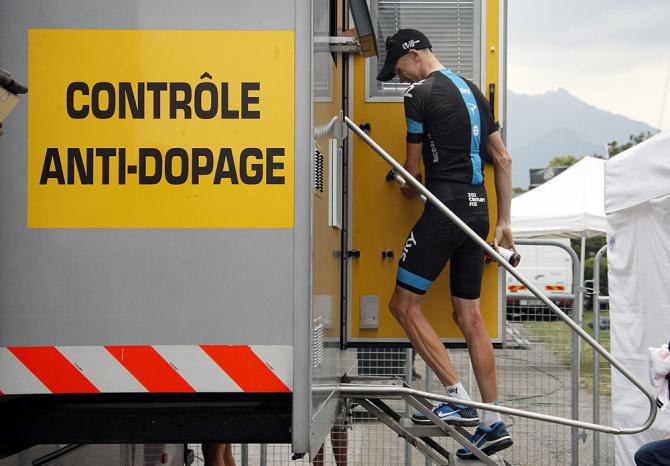No doping cases out of 2014 Tour de France
CADF found no adverse findings

The Cycling Anti-Doping Foundation (CADF) today announced the final tally of anti-doping results from the 2014 Tour de France, stating that no adverse analytical findings were recorded.
No doping cases came out of the 719 blood and urine samples taken during the Tour. The number was up from 2013, when 622 were collected. Of the 719 tests, 517 were part of the biological passport programme. 197 were taken before the race began, while the rest were in-competition.
CADF Director Francesca Rossi confirmed that the testers used information from various sources to perform targeted testing during the race.
“Once again the collaboration with the French Anti-Doping Agency (AFLD) was excellent," Rossi said. "The anti-doping target testing strategy was discussed daily, taking into account the performances of the riders and other data. We also had a valuable contribution from UK Anti-Doping before the start and during all stages in England.
“This year’s Tour was also the first time, in addition to the pre-competition testing, that we organised a second large-scale unannounced mission where all the riders were simultaneously tested for the Athlete Biological Passport during a rest day in Carcassonne. This was made possible thanks to the logistical support of the AFLD,” Rossi said..
UK Anti-Doping Chief Executive Andy Parkinson added, “UKAD works closely with our global partners to provide robust and comprehensive anti-doping programmes in our country.
The samples taken during the Tour de France were tested for Erytropoyesis Stimulating Agents (ESA) as well as checked for exogenous testosterone and its precursors using isotope ratio mass spectrometry (IRMS) in the same WADA-accredited laboratory in Châtenay-Malabry that found Floyd Landis positive in 2006.
Get The Leadout Newsletter
The latest race content, interviews, features, reviews and expert buying guides, direct to your inbox!
The UCI, CADF and AFLD have agreed to store the samples collected for possible retrospective analysis in the future.